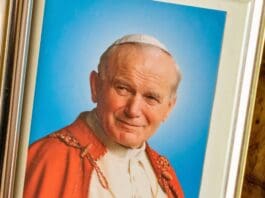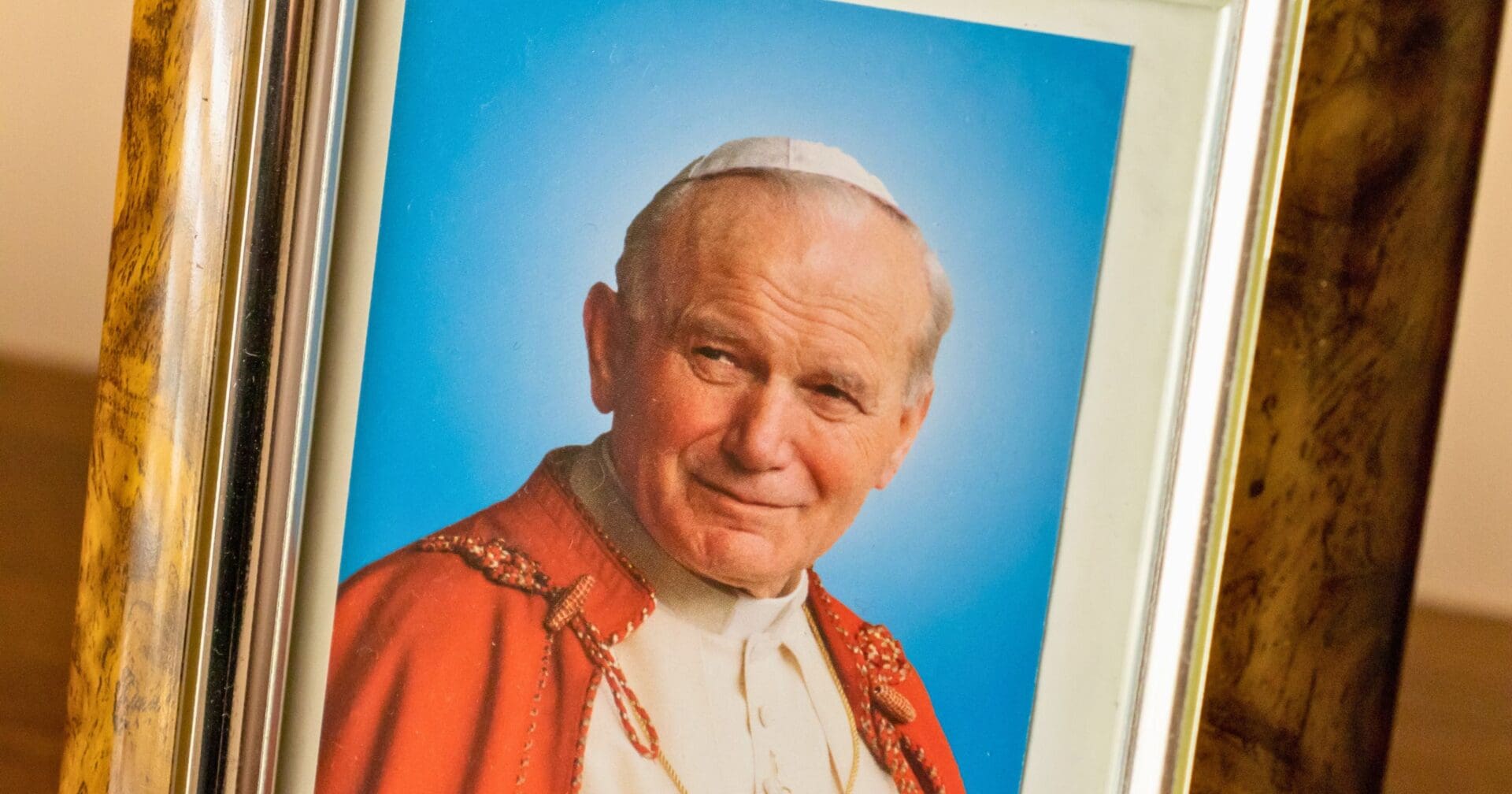
Born on May 18, 1920, in the Polish town of Wadowice, Karol Józef Wojtyła, who would later be known as Pope John Paul II, was the youngest of three children. His parents, Karol Wojtyła and Emilia Kaczorowska, suffered the loss of their daughter Olga before Karol Józef was born. Karol Józef’s mother passed away in 1929, his brother Edmund, a physician, died in 1932, and his father, a former non-commissioned military officer, passed away in 1941.
Karol Józef was baptized on June 20, 1920, by Fr. Franciszek Zak at Wadowice’s parish church. He received his First Holy Communion at the age of nine and was confirmed when he was 18. Following his graduation from Marcin Wadowita high school in Wadowice, he enrolled at Jagiellonian University in Krakow and also joined a drama school in 1938.
However, the Nazi occupation of Poland in 1939 led to the closure of the university, forcing young Karol to work in a quarry from 1940 to 1944 and later in the Solvay chemical factory to make ends meet and avoid deportation to Germany. In 1942, realizing his calling to priesthood, he began clandestine theological studies in Krakow, conducted by Cardinal Adam Stefan Sapieha, the Archbishop of Krakow. During this time, he was also actively involved in the underground Rhapsodic Theatre.
After World War II, Karol continued his theological studies at the re-opened major seminary in Krakow and the Jagiellonian University’s Faculty of Theology. He was ordained as a priest by Archbishop Sapieha in Krakow on November 1, 1946.
Post-ordination, Cardinal Sapieha sent him to Rome, where he earned his doctorate in theology under the French Dominican Garrigou-Lagrange in 1948, with a thesis on the subject of faith in St. John of the Cross’ works. During his holidays, he engaged in pastoral work among Polish immigrants in France, Belgium, and Holland.
Upon returning to Poland in 1948, Karol served as a vicar in various Krakow parishes and as a chaplain to university students. He resumed his studies in philosophy and theology in 1951, defending a thesis on the potential of establishing a Catholic ethic based on Max Scheler’s ethical system at Lublin Catholic University in 1953. He later became a professor of moral theology and social ethics at the major seminary in Krakow and at Lublin’s Faculty of Theology.
On July 4, 1958, Pope Pius XII appointed him as the titular bishop of Ombi and auxiliary of Krakow. He was consecrated on September 28, 1958, at Wawel Cathedral, Krakow, by Archbishop Eugeniusz Baziak. Pope Paul VI appointed him as the Archbishop of Krakow on January 13, 1964, and later made him a cardinal on June 26, 1967.
Cardinal Wojtyła played a significant role at the Second Vatican Council (1962-1965) and participated in all assemblies of the Synod of Bishops. On October 16, 1978, he was elected Pope, adopting the name John Paul II. His pontificate, lasting nearly 27 years, is one of the longest in Church history.
Pope John Paul II was known for his pastoral care, his openness, and his commitment to dialogue and peace. He conducted 104 pastoral visits outside Italy and 146 within, visiting 317 of Rome’s 333 parishes. He met with millions of faithful, as well as numerous world leaders, promoting dialogue with other religions, particularly Judaism.
He initiated the World Youth Days and the World Meetings of Families, encouraging spiritual renewal and emphasizing the importance of holiness. He canonized 482 saints and beatified 1,338 individuals, highlighting their lives as models of faith. He also expanded the College of Cardinals, reformed the Codes of Canon Law, and published significant Church documents, including 14 Encyclicals.
Pope John Paul II also authored several books, contributing to theological and pastoral dialogue. He passed away on April 2, 2005, and was canonized on April 27, 2014, by Pope Francis, in a ceremony also attended by Pope Benedict XVI. His influence and legacy continue to shape the Catholic Church and the wider world today.
Editorial credit: daily_creativity / Shutterstock.com
The post Saint Pope John Paul II appeared first on uCatholic.
Daily Reading
Memorial of Saints Basil the Great and Gregory Nazianzen, Bishops and Doctors of the Church
Readings for the Memorial of Saints Basil the Great and Gregory Nazianzen, Bishops and Doctors of the Church Reading 1 1 John 2:22-28 Beloved: Who is the liar? Whoever denies…
Daily Meditation
A Voice in Today’s WildernessUna voz en la jungla de hoy día
Click here for daily readings Today’s Gospel passage is especially relevant as we begin a new year with resolutions and hope. In this reading we hear John’s declaration echoing the…




